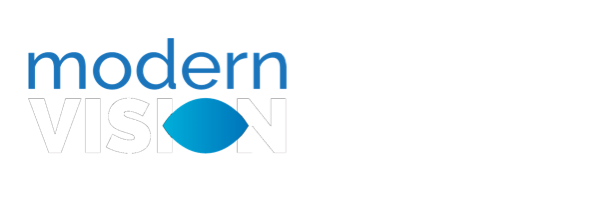Get Answers to Your Questions On Coffee and Vision
Published by on January 14, 2021
Ever wondered about coffee and vision? If you love a good cup of joe, chances are your day doesn’t truly begin until that first sip of coffee hits your lips in the morning. Whether it’s the cold blended Frappuccino life for you or a cup of hot black coffee is more to your liking, you’re not alone in your love of caffeine. In fact, over 2.25 BILLION cups of coffee are consumed daily worldwide! There’s a reason that the world’s coffee industry is worth $100 billion annually.
Many people love coffee because it makes them feel energized and alert. And coffee may truly be an eye-opener each morning — but what about the effect of caffeine on your eyes? To find out about coffee and vision– including how and why your daily coffee habit may affect your vision, read on.
Considering Coffee and Vision: So, What Is Caffeine Anyway?
 Caffeine is a chemical stimulant that is found naturally in over 60 plants. Caffeine is most notably found in tea, coffee, and cacao plants (used for making chocolate). Caffeine works by stimulating the central nervous system and your brain, giving you a jolt of energy 35-40 minutes after you ingest it, and helping prevent tiredness.
Caffeine is a chemical stimulant that is found naturally in over 60 plants. Caffeine is most notably found in tea, coffee, and cacao plants (used for making chocolate). Caffeine works by stimulating the central nervous system and your brain, giving you a jolt of energy 35-40 minutes after you ingest it, and helping prevent tiredness.
Many people may think caffeine is the main ingredient in coffee, but that’s not true. Raw coffee beans only contain about 1% caffeine. And coffee beans carry major benefits aside from their ability to put some pep in your step. Each raw coffee bean also contains about 7-9% chlorogenic acid (CGA). CGA is what gives coffee its acidic taste and bitter smell. CGA is also a powerful antioxidant that has been associated with many health benefits, like helping people lose weight or lower blood pressure.
What Are the Positive Effects of Coffee on Vision?
Studies have found that the CGA in coffee may also be a neuroprotectant. Researchers at Cornell University released a study in recent years that shows CGA may be able to help prevent retinal degeneration. The retina is the thin, light-sensitive layer of tissue at the back of the eye. The retina is responsible for helping your eyes receive and organize the visual information you see. However, it is also susceptible to oxygen deprivation, a condition known as hypoxia.
Hypoxia is when parts of the body become low on oxygen, and that oxygen deprivation can cause severe damage to those areas. When the retinas experience hypoxia, they can become damaged and this can lead to various eye diseases. Some of these conditions include diabetic retinopathy, macular degeneration, and glaucoma. Each of those eye conditions can result in varying degrees of vision loss.
Because CGA is beneficial for other aspects of health, scientists wondered what effect it could have on preventing hypoxia and its resulting degeneration in the eyes. They studied this in mice, and the results were published in the Journal of Agricultural and Food Chemistry. The outcome demonstrated it is possible that CGA and coffee extract could help prevent or slow retinal degeneration.
That’s a big plus for coffee drinkers!
Does Coffee Have Any Negative Effects on Vision?
Short-Term Effects of Coffee on Vision
This is a great question. Just as with most things in life, when it comes to coffee consumption, moderation is key. Overconsumption of caffeine has been linked to some eye issues, both short term and long term.
In the short term, excessive consumption of caffeinated beverages, even coffee, can lead to sudden spikes in blood sugar levels. These blood sugar spikes increase in intensity if you favor sugary, blended coffee drinks. High blood sugar can lead to blurred vision or spasms of the eyelid (think jumping eye). Loading up on too much caffeine can also make your eyes a bit tingly, and the dehydrating effects of coffee might increase the risk of inflammation (as well as decrease attention span). While these types of caffeine side effects are not dangerous, they can be uncomfortable nonetheless, and have the potential to negatively affect your daily activities.
Of course, if you’re experiencing dry, uncomfortable eyes, there’s no need to immediately blame coffee. Consider your activities and working conditions. If you’re someone who logs a lot of screen time for work or play, ensure you’re avoiding glare and practicing the 20-20 rule to alleviate digital eye strain. If you wear contact lenses, be aware of contact lens intolerance (CLI), a progressive and painful medical condition in which the eye begins to reject the contact lens. CLI affects most people who rely on contact lenses long term at some point. If you suspect your uncomfortable eyes may be due to CLI, take our vision quiz now to check.
Long-Term Effects of Coffee on Vision
While the CGA in coffee has been shown to be a neuroprotectant that can reduce retinal hypoxia and protect vision (thank you coffee!), some other studies have indicated that an excessive coffee habit could actually increase glaucoma risk for some people. A study by researchers at Brigham and Women’s Hospital, and one by Harvard Medical School, have shown a direct correlation between consuming three or more cups of coffee daily and an increased chance of developing glaucoma. Glaucoma is characterized by high pressure on the optic nerve, and can eventually cause blindness.
According to these study results, drinking three or more cups of coffee daily over time can contribute to accumulation of deposits in the eyes, known as “exfoliation syndrome.” This syndrome does not on its own cause glaucoma, but it has been shown to increase the risk of developing it. That said, other factors like family history are known to have an effect on glaucoma risk as well, and it’s important to put things in perspective. Research on the correlation between caffeine and glaucoma is not yet complete, and more time and study is needed to fully determine the effects of coffee on both glaucoma risk and prevention.
The Verdict: Is Coffee Good or Bad for Your Vision?
 If you’re a coffee fan, have no fear. Drink up! Just do it in moderation. When enjoyed in reasonable quantities, coffee isn’t bad for your eyes or your vision. It can even be good for your eyes! However, overconsumption of caffeine can have detrimental effects on your eyes and vision in both the short and long term.
If you’re a coffee fan, have no fear. Drink up! Just do it in moderation. When enjoyed in reasonable quantities, coffee isn’t bad for your eyes or your vision. It can even be good for your eyes! However, overconsumption of caffeine can have detrimental effects on your eyes and vision in both the short and long term.
At Kugler Vision in Omaha, Nebraska, we are LASIK and cataract experts. But we also consider ourselves armchair experts on fine coffee. The Kugler Vision doctors and staff have been known to enjoy coffee daily and we pride ourselves on making only the best in the breakroom for that midmorning pick-me-up.
For More Eye-Opening Facts on Vision…
For more eye-opening information on your vision, and how your overall nutrition and daily habits may affect it, check out the rest of our blog. We’ve got some great articles on:
- nutrition and eye health
- protecting your eyes from UV light
- the effects of blue light on your eyes
- eliminating foggy glasses when wearing masks during the COVID-19 pandemic
- the dangers of long-term contact lens wear on the eyes
And, when you’re ready for a fresh start and clear new view, call our office at 402-558-2211 to learn about LASIK vision correction and find out how we can help. Or, book your VisionTrack assessment now while you enjoy a hot cup of coffee.

Lance Kugler, MD, is a specialist in LASIK and vision correction surgery and CEO of Kugler Vision. A proud Omaha native, he is passionate about improving lives through clear vision. Dr. Kugler serves on several national boards, and his practice is recognized internationally as a center of excellence. Dr. Kugler is one of the original founders of the Refractive Surgery Alliance, an international organization comprised of over 350 of the world’s leading vision correction surgeons; he also served as its first president. In 2019, Dr. Kugler was selected as a TEDx speaker, and delivered a talk in Omaha about the worldwide epidemic of nearsightedness and refractive solutions. Dr. Kugler is an Associate Professor of Refractive Surgery at the University of Nebraska Medical Center’s Truhlsen Eye Institute, has been published in many medical journals, and participates in numerous clinical studies to advance the field of vision correction surgery. Additionally, Dr. Kugler is proud to be a Board Certified Fellow of the World College of Refractive Surgery & Visual Sciences. Dr. Kugler and his wife are proud parents to five active kids. When he has a spare moment, he enjoys skiing, tennis, travel, and fine coffee.








Leave a Reply